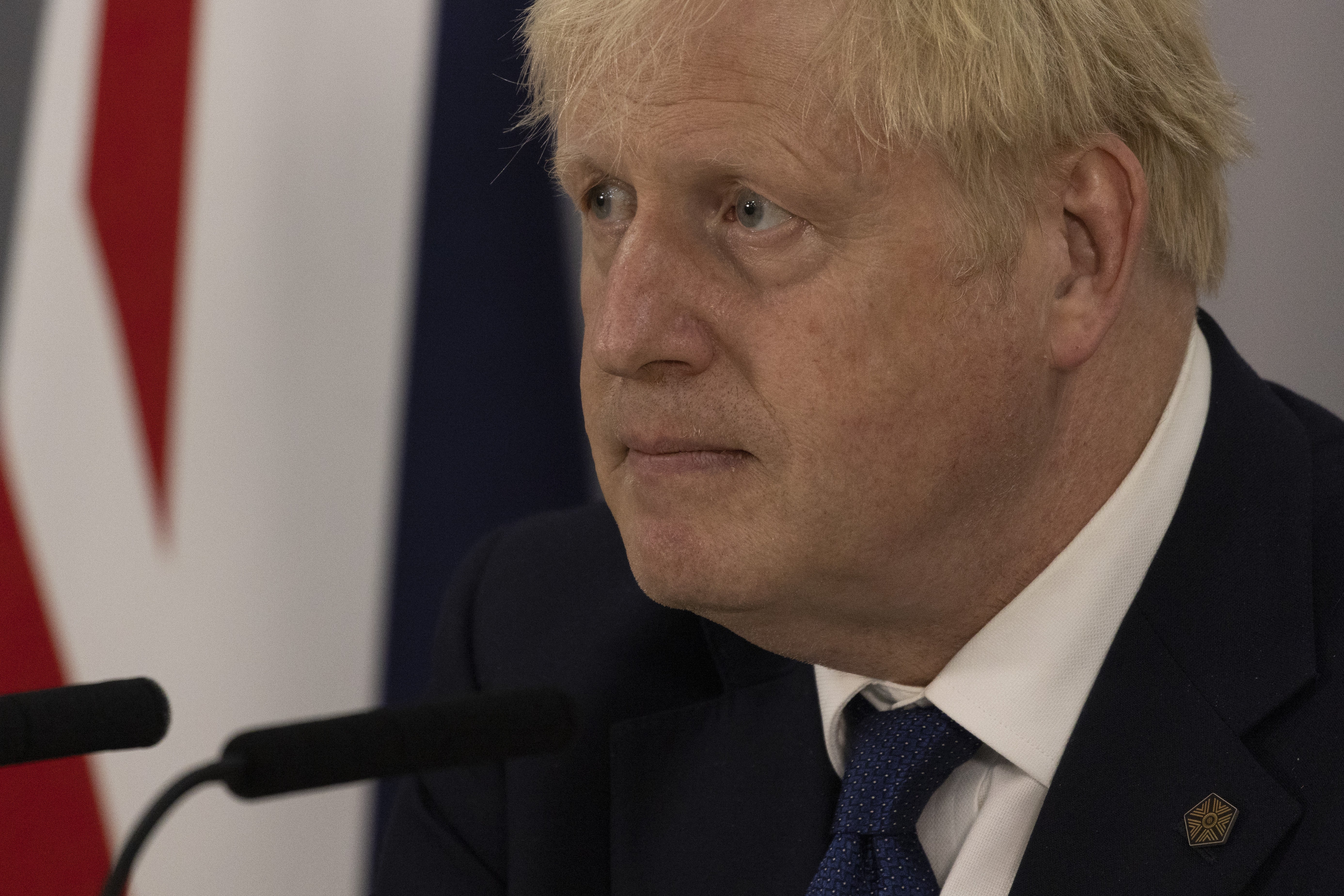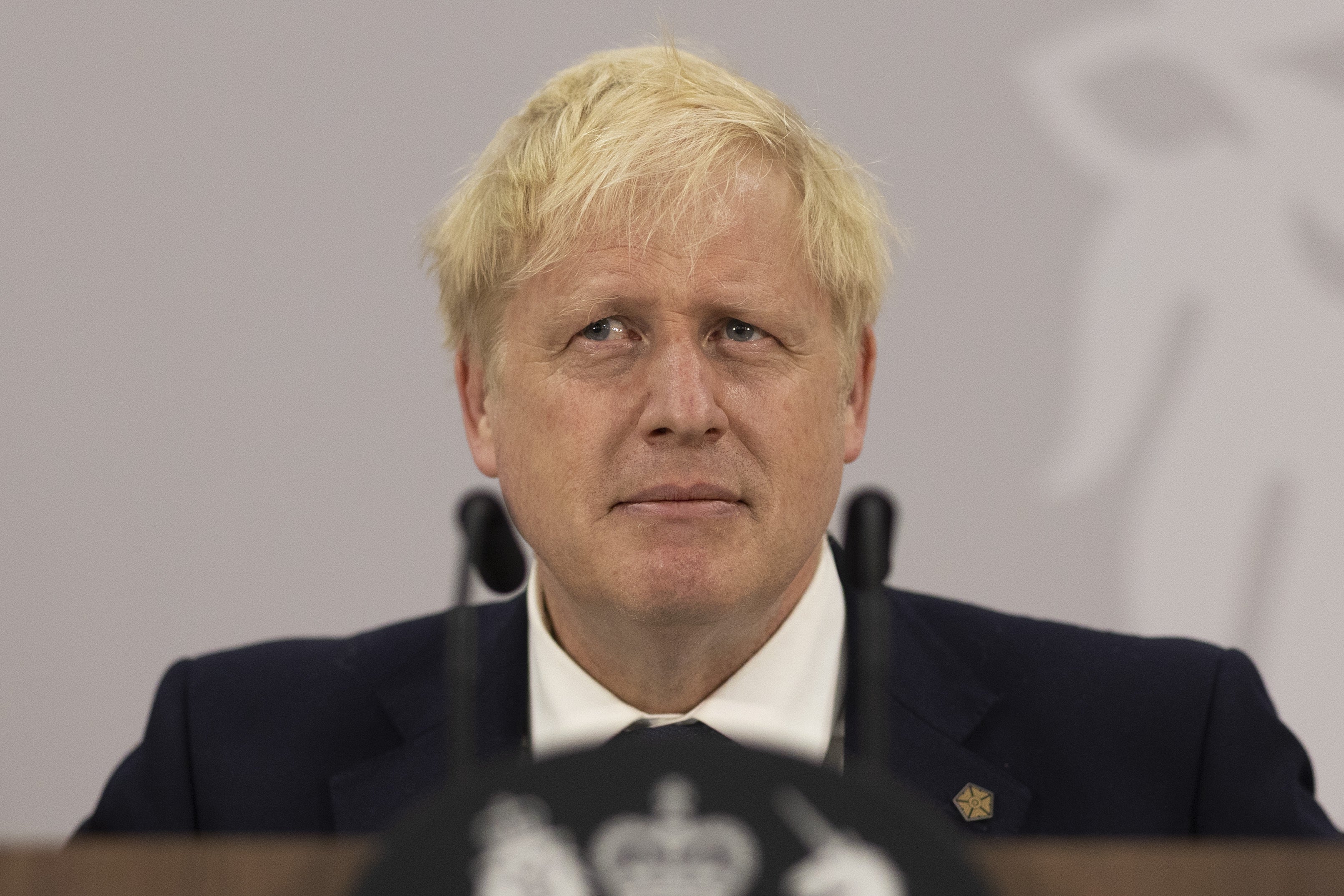Boris Johnson tells Tory opponents their criticism ‘doesn’t matter’ and they have no policies
Prime minister refuses to accept Partygate scandal triggered byelection defeats – and rules out ‘psychological transformation’ to change his character
A defiant Boris Johnson has turned on Tory opponents demanding he resign, telling them their criticism “doesn’t matter” and they have no policy ideas.
Speaking 24 hours after two disastrous by-election defeats, the prime minister refused to accept he “personally contributed” to them through his lawbreaking behaviour in the Partygate scandal.
Mr Johnson also made clear he was not capable of some “sort of psychological transformation” to change his character, saying: “I think our listeners will know that’s not going to happen.”
Instead, he dismissed senior Conservative figures calling for him to go – including former leaders Michael Howard and William Hague – arguing they are not putting forward any alternative platform.
The prime minister claimed the “only argument of substance” made by any of his critics was “for us to go back into the EU single market”.

And he told BBC Radio 4: “As a leader you have to try to distinguish between criticism that really matters and the criticism that doesn’t.”
Mr Johnson was interviewed as Tory rebels plot to seize control of the 1922 Committee of backbenchers in elections next month, to force a rule change to allow another no-confidence vote.
That could be held in the autumn if the looming contempt inquiry into whether he lied to parliament over the No 10 parties is damning.
But the prime minister sought to put a positive spin on only 59 per cent of his MPs backing him in this month’s confidence vote, claiming: “I have a renewed mandate from my colleagues and I’m going to continue to deliver.”

And he insisted the public wanted to hear about his policies – not his personality – saying: “I want to get on with changing and reforming our systems and economy.
“If we’re going to have an argument about politics, let’s have an argument about how the railways run, that is a subject of engrossing fascination for people up and down the country because of the rail strikes.”
Asked what lessons he draws from the Tiverton and Wakefield results, he suggested that voters are “heartily sick of hearing about me and the things I’m alleged to have done wrong.”
However, in an interview with Sky News, Mr Johnson did appear to acknowledge personal failings, saying “people were absolutely fed up about hearing about things that I’d stuffed up”.
Mr Johnson also said the test of success for the controversial policy of deporting asylum seekers to Rwanda was to cut the numbers attempting the dangerous Channel crossings.
But, asked when the government would know it was “breaking the business model” of the people traffickers, as he put it, the prime minister told BBC Radio 4: “I’m not going to give you a figure.”
Asked what would make him resign, Mr Johnson pointed to any cabinet decision to “abandon” Ukraine’s fight against Russia’s invasion, while admitting that is highly unlikely.
“If it was put to me that we had to abandon the Ukrainian cause because it was simply getting too difficult and that the cost of supporting that people in their heroic fight was too great,” he said.
“I would accept that I have lost a very important argument and I would go – but I don’t see that.”
Join our commenting forum
Join thought-provoking conversations, follow other Independent readers and see their replies
Comments
Bookmark popover
Removed from bookmarks